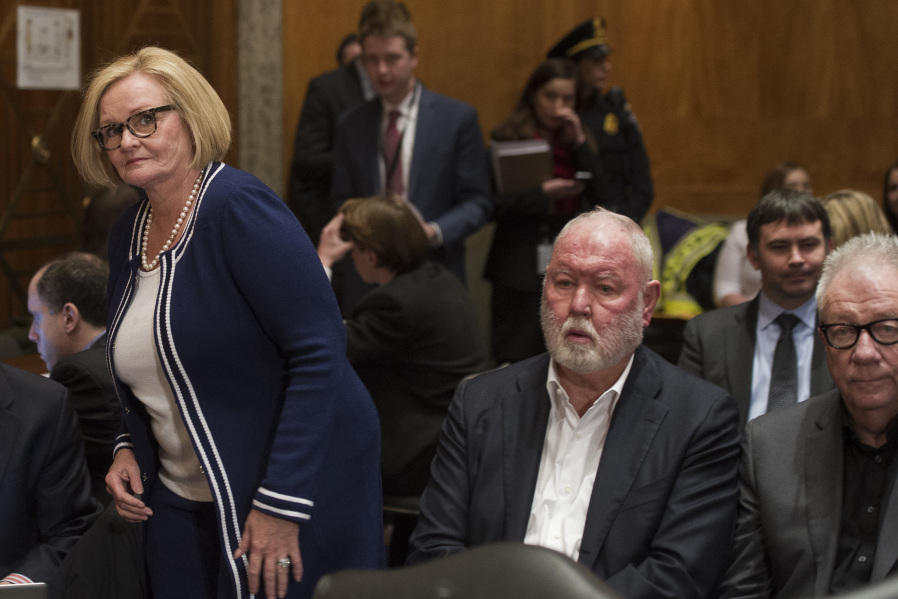PHOENIX (AP) — A founder of the lucrative classified site Backpage.com will face his second trial on charges of facilitating prostitution and laundering money in what authorities say was a scheme to knowingly sell ads for sex on the site.
Jury selection for Michael Lacey and four former Backpage employees will resume for a second day Wednesday in federal court. Their first trial ended in a mistrial in September 2021 when a judge concluded prosecutors had too many references to child sex trafficking in a case where no one faced such a charge.
Lacey had founded the Phoenix New Times weekly newspaper with James Larkin, who was charged in the case and died by suicide in July. Lacey and Larkin held ownership interests in other weeklies such as The Village Voice and ultimately sold their newspapers in 2013. But they held onto Backpage, which authorities say generated $500 million in prostitution-related revenue from its inception in 2004 until 2018, when it was shut down by the government.
In all, five former Backpage operators have pleaded not guilty to charges of facilitating prostitution. Of the five, Lacey and two others have pleaded not guilty to money laundering charges.
The site’s marketing director has pleaded guilty to conspiring to facilitate prostitution and acknowledged he participated in a scheme to give free ads to prostitutes to win over their business. Additionally, the CEO of the company when the government shut the site down, Carl Ferrer, pleaded guilty to a separate federal conspiracy case in Arizona and to state money laundering charges in California.
Prosecutors say Backpage’s operators ignored warnings to stop running prostitution ads, some involving children. They are accused of giving free ads to prostitutes and cultivating arrangements with others who worked in the sex trade to get them to post ads with the company.
Authorities say Backpage employees would identify prostitutes through Google searches, then call and offer them a free ad. The site also is accused of having a business arrangement in which it would place ads on another site that lets customers post reviews of their experiences with prostitutes.
Backpage’s operators said they never allowed ads for sex and used people and automated tools to try to delete such ads and maintain the content on the site was protected by the First Amendment. Prosecutors said the moderation efforts by the site were aimed at concealing the true nature of the ads.
Lacey also is accused of using cryptocurrency and wiring money to foreign bank accounts to launder revenues earned from the site’s ad sales after authorities say banks raised concerns that they were being used for illegal purposes.
At trial, the Backpage defendants are barred from bringing up a 2013 memo by federal prosecutors who examined the site and said at the time that they hadn’t uncovered evidence of a pattern of recklessness toward minors or admissions from key participants that the site was used for prostitution.
In the memo, prosecutors had said witnesses testified Backpage made substantial efforts to prevent criminal conduct on its site and coordinated such efforts with law enforcement agencies. The document was written five years before Lacey, Larkin and the other former Backpage operators were charged in the Arizona case.
A Government Accountability Office report released in June 2021 said the FBI’s ability to identify victims and sex traffickers had decreased significantly after Backpage was seized by the government, because law enforcement was familiar with the site and Backpage was generally responsive to requests for information.
U.S. District Judge Susan Brnovich, who had declared a mistrial during the first attempt to try the Backpage defendants, had allowed evidence showing that people were trafficked using the site, but cautioned prosecutors not to linger on details of the abuse. “It seemed the government abused that leeway,” Brnovich said when declaring a mistrial.
In a pretrial ruling, U.S. District Judge Diane Humetewa, who is presiding over the second trial, repeated that warning to prosecutors.



